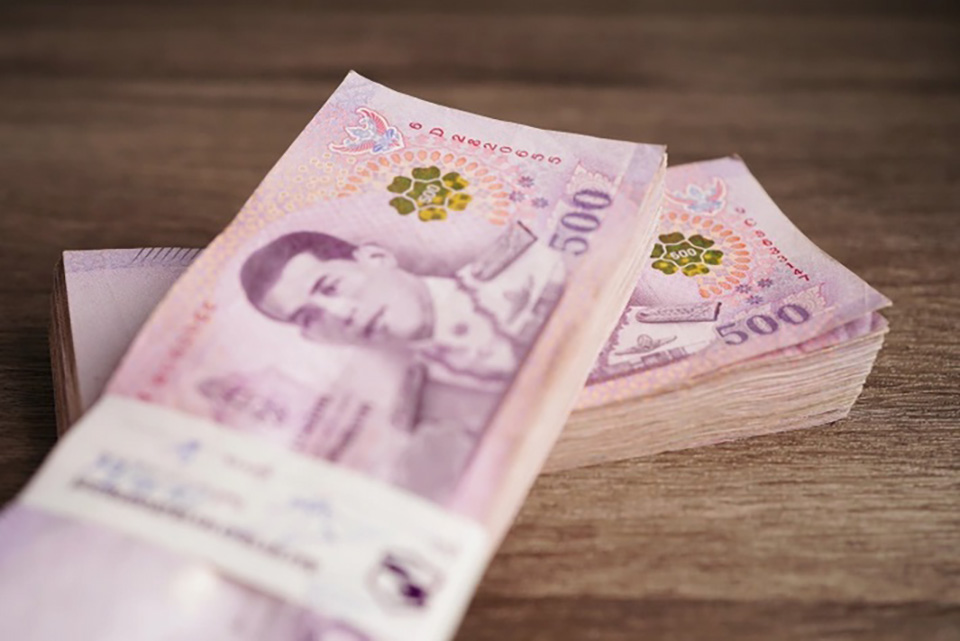
BANGKOK, Thailand – Market Strategist at Krungthai GLOBAL MARKETS, Poon Panichpibool, revealed that the Thai baht opened at 33.78 against the US dollar in the morning, October 24, weakening significantly from its close on Tuesday, October 22, at 33.50. He predicts the baht will trade in a range of 33.65-33.90 baht per dollar today. Since Tuesday night, the baht has been depreciating (with a range of 33.47-33.85), breaking the resistance level of 33.65 baht per dollar due to ongoing pressure from the strengthening US dollar.
The dollar’s rise is being driven by market players reducing expectations of Federal Reserve interest rate cuts and increasing long USD positions to hedge against uncertainty ahead of the US election. Additionally, the depreciation of other major currencies, particularly the Japanese yen (JPY), which weakened past 153 yen per dollar due to widening US-Japan bond yield spreads, has supported the dollar’s strength.
The baht is also under pressure from gold buying flows, triggered by a correction in gold prices, which fell more than $40 per ounce overnight. Many market participants, maintaining a positive outlook on gold prices, took the opportunity to buy during the dip.
Today’s key focus will be the October Purchasing Managers’ Index (PMI) reports from major economies including the US, Eurozone, UK, and Japan, which will provide insights into economic trends and central bank policies. US jobless claims data will also be closely watched, as it is a key factor in the Fed’s monetary policy decisions.
Looking ahead, the baht is expected to continue weakening. The Krungthai team maintains its view from October 2, when they predicted the USD/THB would bottom out around 32 baht per dollar. Since the baht has now breached the resistance level of 33.65, technical analysis suggests it could form a “Cup with Handle” pattern, potentially pushing the baht towards 34.00-34.25 baht per dollar if downward pressures persist, such as further dollar strength and ongoing foreign asset sales in Thailand.
However, the baht’s depreciation may slow due to the potential for a rebound in gold prices, as investors continue to seek safe-haven assets amid uncertainty from the US election, Middle East tensions, and broader financial market risks. Some market players may also look to sell dollars as the baht weakens toward its new resistance level of 33.85.
Lastly, the baht could experience volatility as the market reacts to PMI data from major economies, particularly the US. If the US PMI results are worse than expected, market participants might increase expectations for further Fed rate cuts, which could weaken the dollar and US bond yields, potentially allowing the baht and gold prices to rebound.








